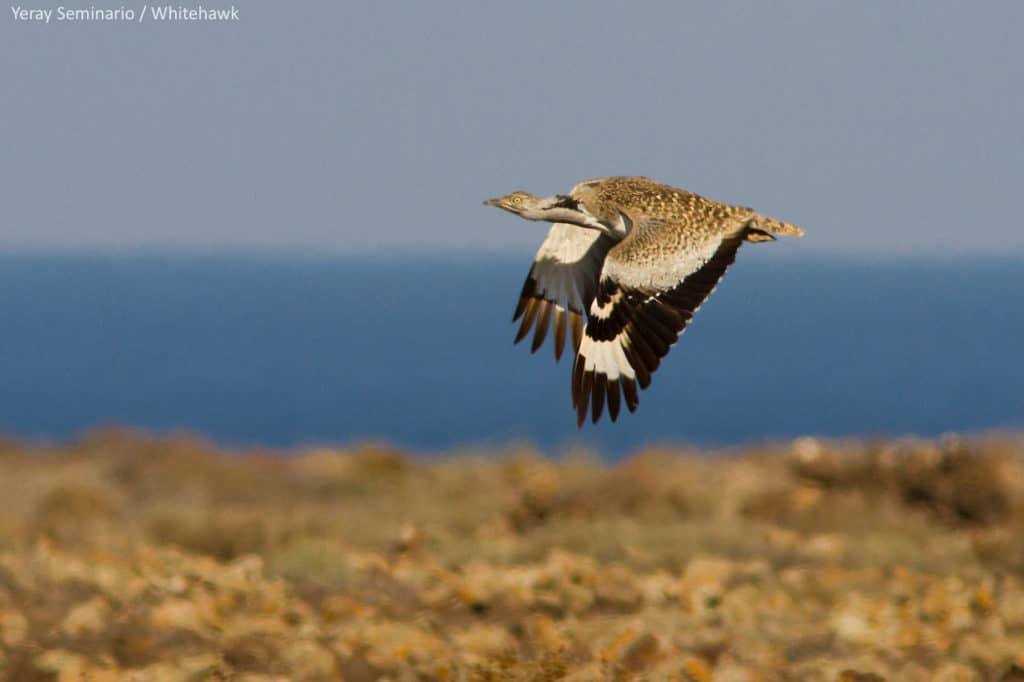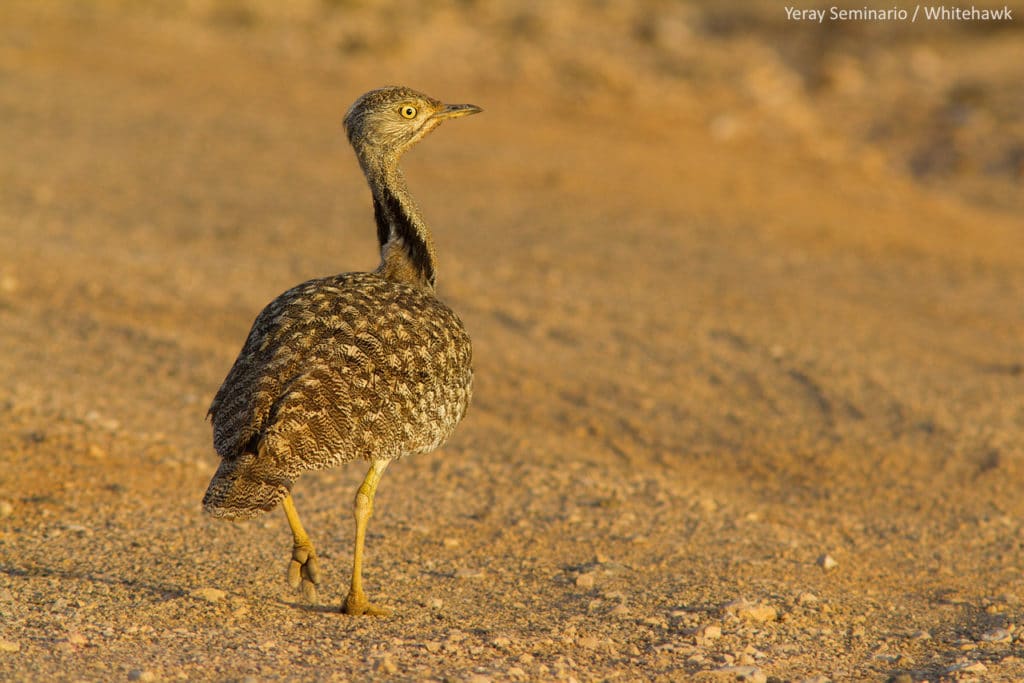In late 2011, Whitehawk began collaborating with GREFA, a Spanish NGO. We partnered with them to help carry out a population census of the Canarian Houbara Bustard (Chlamydotis fuertaventurae undulata) on the islands of Fuerteventura and Lanzarote, Spain.

An Endemic Subspecies of the Houbara Bustard
The Canarian Houbara Bustard is an endemic subspecies. It inhabits semi-desert environments and feeds on the flowers, fruits and insects that inhabit the rocky plains or coastal dunes. During the period of courtship, the males perform a spectacular mating dance, which consists of fast runs and raising their neck feathers until they cover the entire head. All this is done with the aim of attracting the largest number of females possible.
The Canarian population is limited to the eastern islands and islets. Due to its small size it is very sensitive to habitat disturbance. The censuses Grefa conducts on this species act as a barometer for assessing the health of this population. They also help measure the effectiveness of conservation measures being carried out.
During nearly a month of work, GREFA carried out this study, just as they have done in previous years, so that they can compare data and thus establish a reliable population trend. From dawn to dusk, an eight-person team with extensive experience in the field conducted counts and took the coordinates of any Houbara sightings. In addition, Whitehawk has been working on collecting images for a promotional video that will help this NGO continue its work for the conservation of threatened fauna.

Whitehawk and the Canary Islands
We at Whitehawk are working to offer a great trip to the Canary Islands very soon. On this tour you will see all the endemics, including the beautiful Canarian Houbara. You will enjoy the incomparable scenery of this magical archipelago. Whitehawk donates a percentage of its profits to local conservation programs. This means you can enjoy watching birds and other wildlife, while also helping to protect them.

